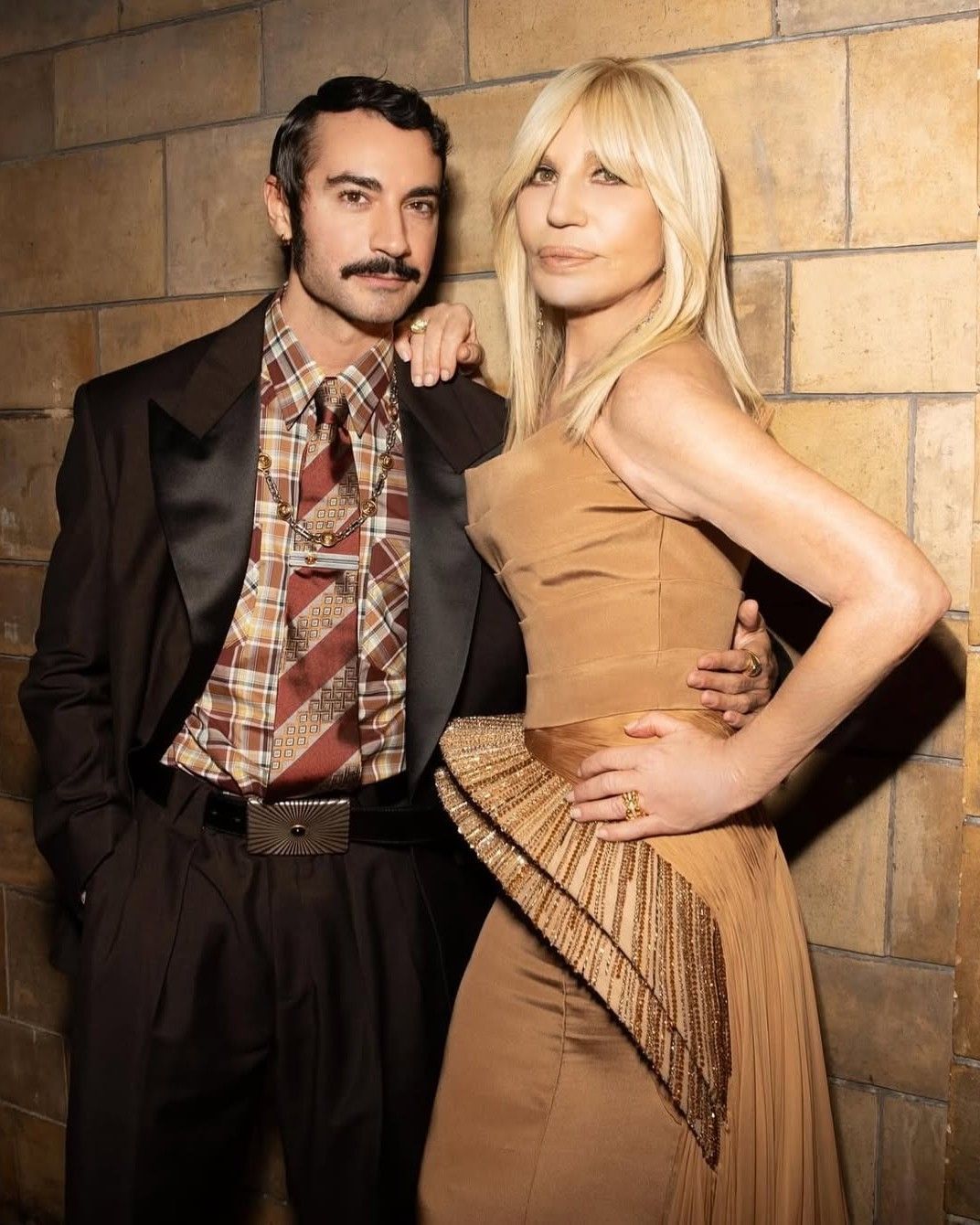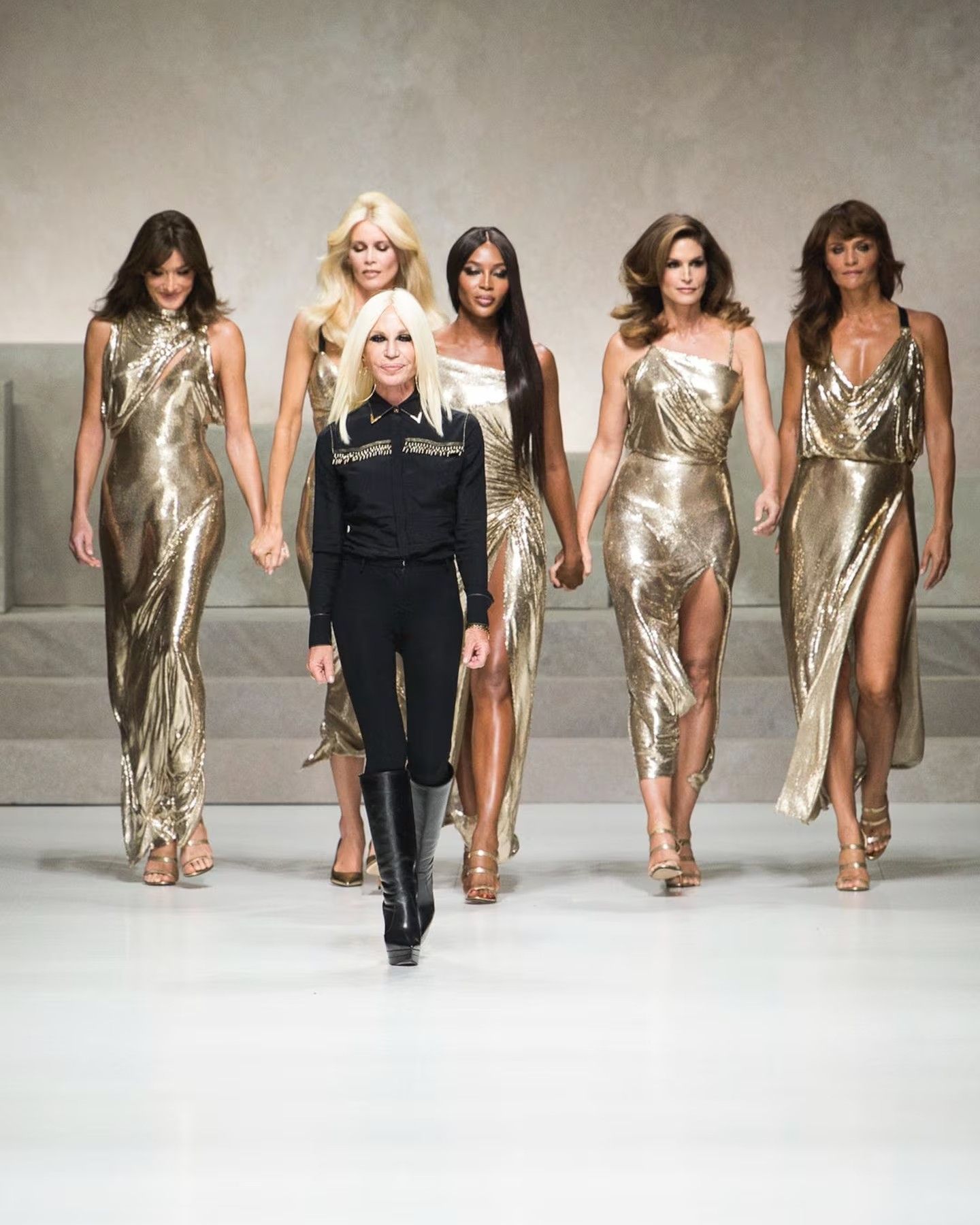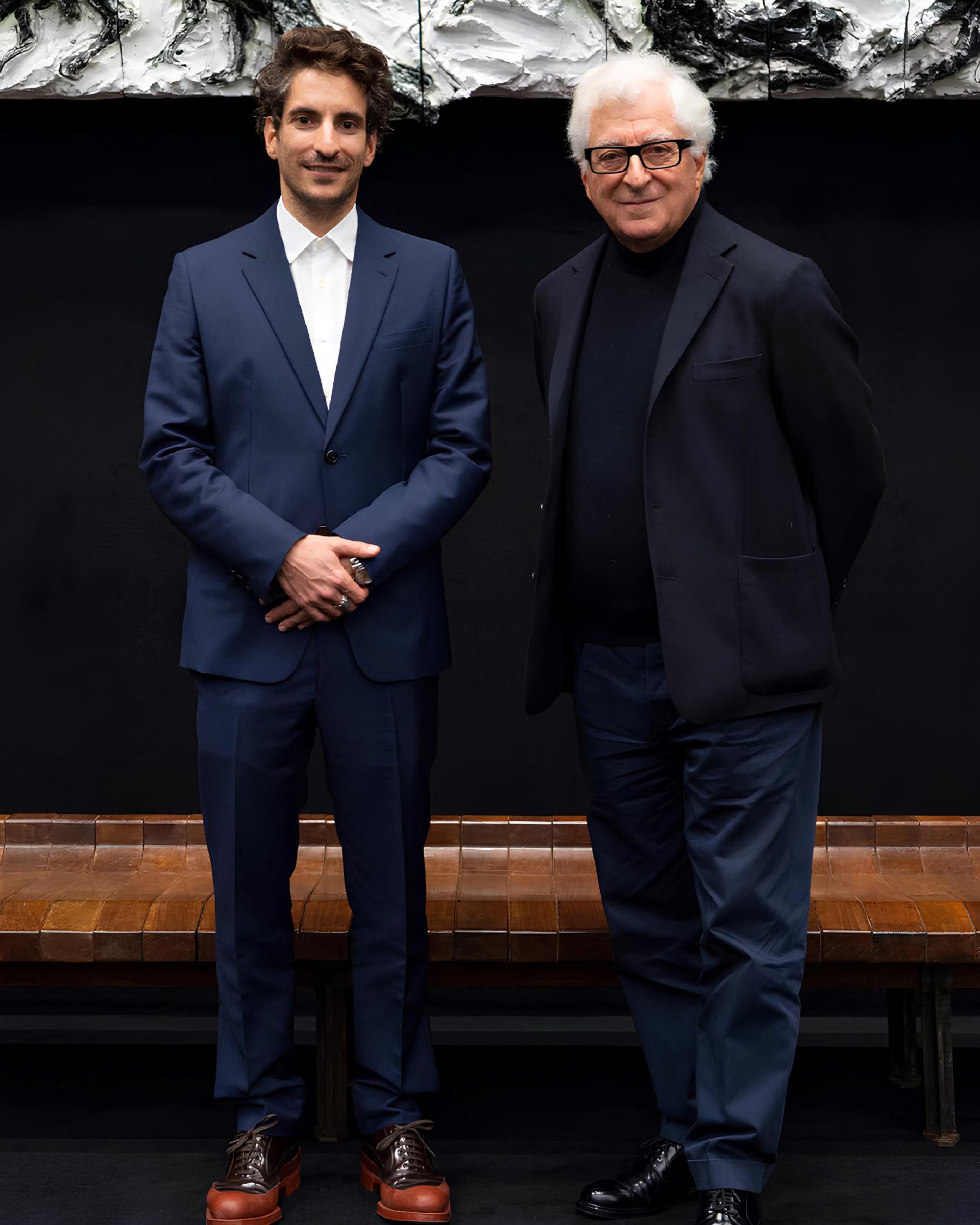
How music, fashion, art are changing the new concept of masculinity Lil Nas X and the Versace pink cowboy outfit
During the Grammy awards ceremony, Lil Nas X - awarded for "Best music video" and "Best duo performance" - wore a splendid custom-made dress by Versace, designed and produced for him. Cowboy aesthetics, pink leather, bondage references, and transparencies have enhanced the figure of Lil Nas X, who became, after his coming out last July, one of the symbols of the redefinition of masculinity within the black community and the music industry: the country and the trap world, whose culture has always been plenty of machist stereotypes.
Lil Nas X's outfit was one of the most appreciated by the media, a fixed presence in the list of the best-dressed ones that flock to the websites of fashion magazines: W Magazine wrote «it was the matching harness underneath that was straight out of one of Versace's most iconic shows » recalling Gianni Versace's 1992 campaign called "Miss S&M".
The link with the collection becomes even more important when you notice that the protagonists of the '92 campaign were only women’. Fashion designers such as Shayne Oliver and Telfar Clemens are shaping mainstream fashion and trying to promote a new definition of masculinity. However, not everyone liked and enjoyed Lil Nas X’s outfit: rapper Pastor Troy - a rapper of the old deep south and hardcore generation - published a homophobic rant on his Instagram account: "Well, Guess I won't be winning a GRAMMY ... If this what I gotta wear, ", and then continue "Their agenda to take the masculinity from Men, Black Men Especially. Some may say, 'He Making Money !!' ". Lil Nas X replied on the post saying "damn I look good in that pic on god", weakening the homophobic regurgitation of Pastor Troy.
The role of "facilitator" that Lil Nas X gave himself in July, speaking to CBS, has been fundamental to make him one of the symbols of the modern LGBTQ+community: "I mean because of me being in this position it's easy for me. But like, some little boy 10 miles from here, it's not gon 'be good for him." Until a few years ago, in fact, black masculinity has presented only one version of itself, which often referred to the concept of hyper-masculinity. Dapper Dan interviewed by Vice said that he partially blames the stereotype given by the street culture on the American ghettos: " On the streets, there is a distorted concept of masculinity ... When you have holes in your shoes and you see someone getting money, they become your first heroes. But real masculinity is not being able to inflict pain. It's being able to take it". Hypermasculinity and hypersexualization of black masculinity have been perpetrated for years in the entertainment industry, as Wesley Morris pointed out in the New York Times, starting with blaxploitation and gangsta movies of the 1990s. "Moonlight", the 2017 Oscar winner movie with Barry Jenkins, was the first mainstream film to challenge that type of aesthetic and show the different shades of masculinity. Fashion has an impact too - such as Telfar show at Pitti in Florence - art and photography also tried to expose themselves for the elaboration of a new black masculinity concept: Tyler Mitchell - the photographer who portrayed Beyoncé on the cover of Vogue - interviewed by Highsnobiety on the occasion of the inauguration of his new exhibition said: "presenting a self-contained or alternative point of view of what masculinity can be. If we don’t present these images or allow them to proliferate through pop culture, men won’t feel like they can however they want to be."
Also, the artist Shikeith a few months ago tried to explore the concept of a new masculinity, as well as Joshua Renfroe, interviewed by nss magazine: "As a black man, society continuously tries to homologate you and I am very happy that people continue to break those boundaries and simply be themselves." It is fundamental, that in the various fields of the art world, representations do not flatten on the stereotypes consolidated in the last 30 years of the entertainment industry. Aesthetic representations or public show-offs such as Lil Nas X are essential to favor a process of normalization that is still incomplete today, as shown by the rant of a public figure – not well known in Europe - such as Pastor Troy.























































